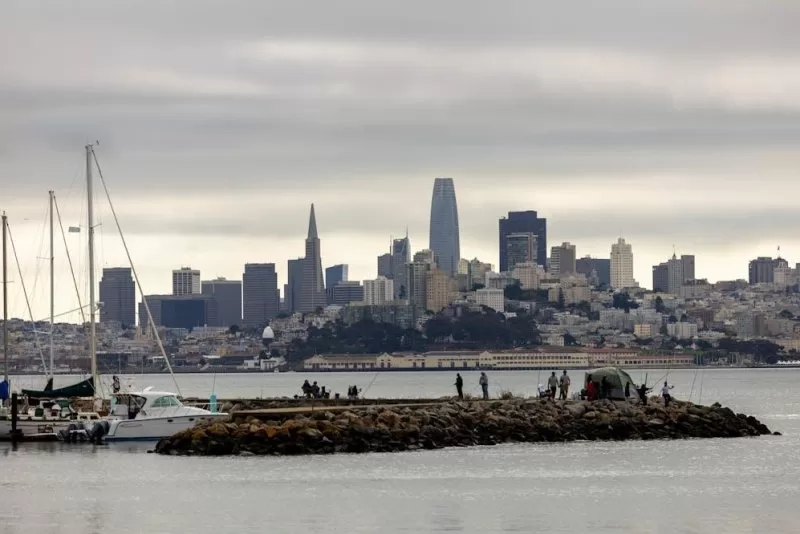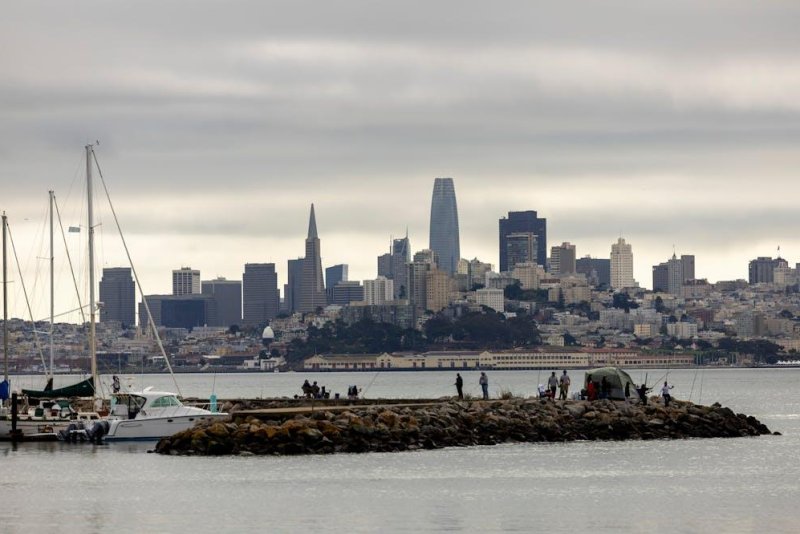The San Francisco case started about a decade ago when the Environmental Protection Agency included generic prohibitions against violating water quality standards in discharge permits. Photo by Stephen Leonardi/
PexelsWASHINGTON, Oct. 16 (UPI) The U.S. Supreme Court appeared receptive to upholding the U.S. Environmental Protection Agency’s right to place generic limits on ocean sewage discharge as San Francisco took its contentious battle to the high court Wednesday.
That indication came despite resistance from some lawmakers and environmental advocates, who fear the high court would undermine Clean Water Act protections.
The question presented by the city focused on whether the Clean Water Act allows the EPA to impose rules that subject permit holders to enforcement for exceeding water quality standards “without identifying specific limits to which their discharges must conform.”
Environmentalists feared the Supreme Court would go beyond the question and use the case to undermine the EPA’s authority as a whole after several high court rulings chipped away at environmental protections.
In June, the Supreme Court’s ideologically divided 6-3 ruling in Loper Bright Enterprises vs. Raimondo struck down the 40-year-old Chevron doctrine which provided deference to federal agencies’ interpretation of ambiguous federal law and regulations.
The United States saw several other rulings undermining environmental protections in recent years, including the high court’s use of its emergency — or “shadow” — docket to halt the EPA’s curbing of smog-forming air pollution that crosses state lines in Ohio vs. EPA.
In 2023, the Supreme Court stripped federal protections for over half the nation’s wetlands in the Sackett vs. EPA case.
Oral argument breakdown
According to San Francisco City Attorney David Chiu, the case started about a decade ago when the EPA included generic prohibitions against violating water quality standards in discharge permits.
“They essentially say we can’t contribute to excess pollution without defining what is excess or which pollutants need to be controlled,” Chiu, who was among the petitioners, said in an interview.
But the justices appeared to agree that the Clean Water Act does not prohibit the agency from using generic language.
“There’s got to be something in this statute that tells you that the agency can’t decide to go the less prescriptive, more flexible ‘you decide how to meet it; this is the goal’ route,” Justice Elena Kagan said when questioning Tara Steeley, San Francisco’s deputy city attorney. “And I don’t see anything in this statute that does that.”
Still, Justice Brett Kavanaugh appeared skeptical about the use of generic language, shifting the question from what is legal to what is practical.
“It’s just hard to know in advance, when multiple other people are also discharging into the same waters, when you’re going to have crossed the line, right?” Kavanaugh asked Frederick Liu, assistant to the Solicitor General for the Department of Justice, who was representing EPA.
Liu repeatedly responded by arguing that the EPA is willing to make it more practically implementable by giving specific prohibitions — but is unable to do so after San Francisco failed to give the agency information on the state of its sewage system despite EPA’s requests.
“Where do the flows go? What’s the conditions of the pipes and the pumping stations? How does the system respond to wet weather events?” Liu said. “That’s the information that we’ve been lacking for the past 10 years and that we asked San Francisco to provide as part of the long-term control update [fruitlessly].”
Justice Samuel Alito moved to introduce a possible solution, which Justice Sonia Sotomayor reiterated later in the argument.
Alito asked Liu if he wanted the high court to hold that these permit requirements are allowed when the “EPA or the state has made every reasonable effort to get the necessary information from the regulated party and the regulated party has refused to provide the information.”
“In that limited situation, you can resort to this sort of permit condition?” Alito questioned.
“We think … yes,” Liu responded.
Environmentalist focus
The seeming lack of ideological division of justices in the case comes as a surprise after lawmakers and advocates repeatedly voiced opposition to the high court’s involvement, fearing the Supreme Court would undermine the Clean Water Act as a whole by siding with San Francisco,
Organizations like the National Mining Association, the American Petroleum Institute, the National Association of Manufacturers and the U.S. Chamber of Commerce supported the city’s position.
San Francisco’s Board of Supervisors, a legislative body independent from the mayor and city attorney, introduced a resolution last week urging the city to drop the lawsuit that “has the potential to seriously destabilize Clean Water Act protections at a time when environmental protections are already under serious threat,” the San Francisco Chronicle reported.
Mike Farrah, legislative aide to Supervisor Myrna Melgar, who introduced the resolution, said the supervisors approached Chiu and asked to avoid litigation at the Supreme Court, concerned that “they would strip away the ability of the Environmental Protection Agency to set rules and regulations.”
According to Chiu, San Francisco attempted to solve the issue without the high court involvement on several occasions “to no avail.” He cited multiple mediation meetings with the agency but said he could not provide records since “mediation discussions are confidential.”
Still, the activists wish the case was dropped before coming to the high court.
“Regardless of how narrow [San Francisco’s] dispute may be with the EPA, the Supreme Court can take that and interpret it as it will,” said Scott Webb, vice chair of the Sierra Club San Francisco Bay Chapter. “It’s like bringing in the mafia to deal with a small, schoolyard dispute.”
What comes next
With oral arguments now concluded and an opinion not expected for months, uncertainty clouds the future of the Clean Water Act.
If the high court rules in favor of San Francisco, the consequences will be nationwide, experts say.
“This challenge would affect the legal authority of the EPA — and possibly of state agencies that also issue permits — o include these types of limits in any permit anywhere in the country,” said Becky Hammer, a senior attorney with the Nature Resources Defense Council.
“Not just San Francisco, not just sewer systems, but any type of water pollution discharge anywhere in the United States,” Hammer said.
“That would be very harmful to the goals of the Clean Water Act … designed to provide everybody in this country with safe, healthy waterways.”

